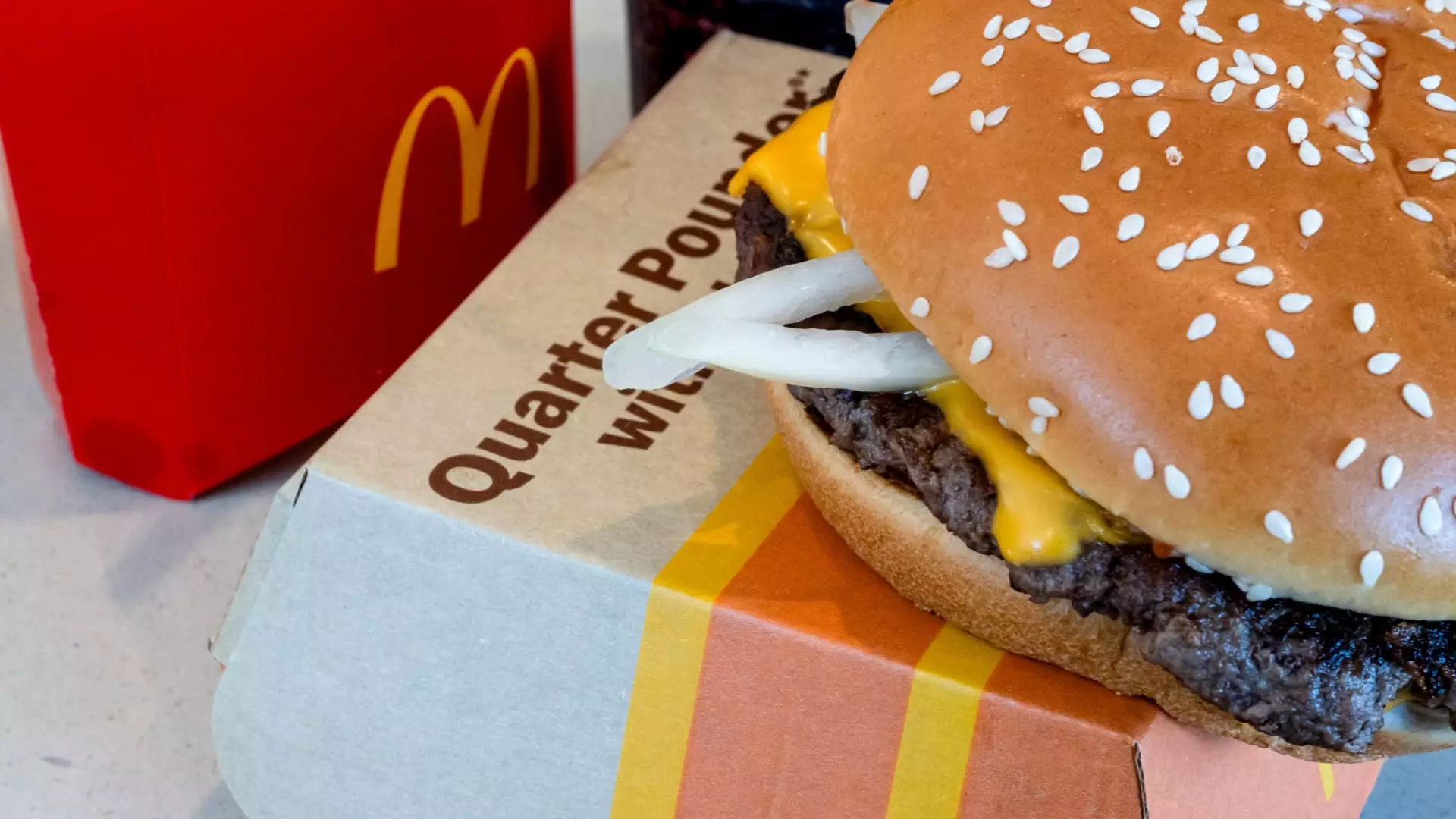In a troubling development for both public health and the fast-food industry, a lethal outbreak of E. coli linked to McDonald’s signature Quarter Pounder hamburgers has emerged, resulting in 75 confirmed cases across 13 states. The Centers for Disease Control and Prevention (CDC) has reported significant consequences from this outbreak, which includes 22 hospitalizations and one unfortunate death of an elderly individual in Colorado. This incident serves as a vivid reminder of the potential dangers associated with foodborne illnesses and raises questions about the effectiveness of food safety protocols in large restaurant chains.
The CDC’s investigation reveals alarming statistics, as nearly one-third of the infected individuals have required hospitalization. Among the 61 patients from whom information has been gathered, a concerning two have developed hemolytic uremic syndrome, a serious condition that can lead to kidney failure. This outbreak does not just affect a narrow demographic; it has impacted individuals aged between 13 and 88 years. According to interviews, every one of the 42 respondents confirmed consuming food at McDonald’s, and a vast majority noted that they had eaten a beef hamburger, indicating a clear link to the restaurant’s offerings.
Moreover, health officials caution that the number of cases may significantly underrepresent the actual scope of the outbreak. Many infected individuals do not seek medical attention or undergo E. coli testing, making it difficult to gauge the total incidence accurately. The CDC has emphasized that the outbreak could extend beyond the states that have officially reported cases, underlining the persistent risk associated with foodborne pathogens in fast food outlets.
Stock Market Reaction and Corporate Responsibility
In immediate response to the CDC announcement, McDonald’s saw its stock value drop by 2%, with a cumulative decline of 6% since the outbreak’s initial notification. This financial plateau demonstrates the tangible effects that health crises can impose on corporate profitability and consumer confidence. Although McDonald’s has refrained from making extensive comments about the situation, its Quarter Pounders represent a substantial portion of its revenue, amounting to billions annually. This situation poses a serious threat to both customer trust and the company’s financial well-being.
To mitigate the potential risk and uphold food safety standards, health officials are meticulously examining the slivered onions used in the Quarter Pounder. In a precautionary move, McDonald’s has mandated its outlets in affected regions to discontinue the use of slivered onions and has ceased distribution of this ingredient. Various states such as Colorado, Kansas, and Utah have been alerted to this contamination concern, suggesting that the company is taking proactive measures to reassure customers.
In a related response to the outbreak, Taylor Farms — the California-based supplier of the contaminated onions — has issued a recall for multiple raw onion products. Other fast-food outlets, including Burger King and KFC, have followed suit by withdrawing similar onion products in their restaurants, demonstrating a unified approach to ensure consumer safety.
Future Implications and Market Responses
As the CDC and cooperating federal agencies work to pinpoint the outbreak’s source and prevent further infections, McDonald’s has taken the additional step of removing Quarter Pounders from the menu in impacted locations—a move that may affect a considerable portion of their U.S. restaurants. Estimates suggest that approximately one-fifth of McDonald’s locations are temporarily not serving these popular burgers.
Despite these trials, corporate representatives have stated that it is premature to assess the impact of the outbreak on restaurant traffic. However, analysts are closely watching McDonald’s performance as it approaches its third-quarter earnings report. With minimal growth expectations of only 0.5% in same-store sales, the outbreak could further dampen the company’s recovery efforts as it grapples with sluggish consumer interest.
This E. coli outbreak serves as a stark reminder of the complexities surrounding food safety in large-scale food production. As the response unfolds, McDonald’s faces the dual challenge of assuaging public anxiety while preserving its market position in a highly competitive fast-food landscape. Public health officials’ vigilance and the company’s responsive actions will be crucial in determining the outbreak’s long-term impact on both consumer habits and corporate stature. For now, the overarching message remains clear: consumer safety must always be paramount, especially within industries that play such a significant role in everyday nutrition.


Leave a Reply